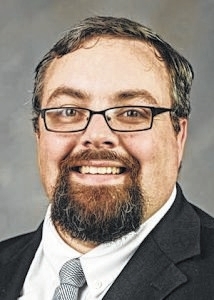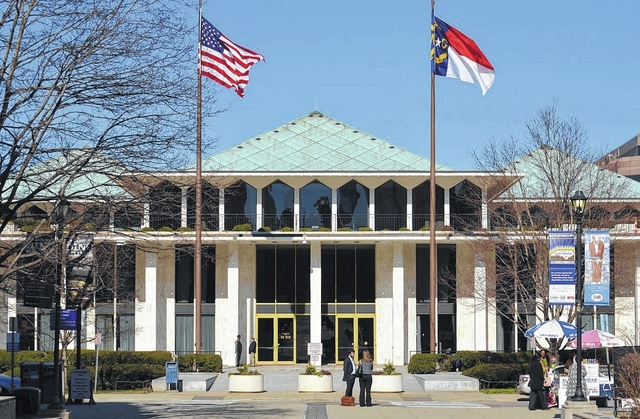RALEIGH — State lawmakers could curtail access to some public records, allow double-digit fees for fulfilling records requests and place jail booking photos under lock and key before a special legislative session ends.
Four bills to modify North Carolina public records laws were introduced during a flurry of Tuesday evening filings in the House. After passing a $201 million disaster relief bill, Republican legislative leaders adjourned the special session called by Gov. Pat McCrory and voted to immediately open another session.
A handful of the 28 bills filed Tuesday seek to reduce Democratic Gov.-elect Roy Cooper’s power by requiring legislative confirmation of Cabinet secretaries, slashing the number of executive branch political appointees and withdrawing gubernatorial appointments to university trustee boards.
House Bill 3, a 43-page hodgepodge of proposed law changes titled the Regulatory Reform Act of 2016, would authorize government agencies to apply staff-time surcharges to public records requests officials consider extensive, green-lighting a controversial town of Middlesex policy that Cooper has questioned as attorney general.
ONLINE RECORDS ACCESS
Rep. Chuck McGrady, R-Henderson, introduced HB 3 with fellow primary sponsor Rep. Jimmy Dixon, R-Duplin. Reps. Susan Martin, R-Wilson, Jonathan Jordan, R-Ashe, and Dennis Riddell, R-Alamance, signed on as co-sponsors.
In a rewrite of the N.C. Public Records Act, HB 3 would allow cities, towns and state agencies to offer online access to government files in lieu of providing printed copies of records upon request.
“A public agency that provides access to public records or computer databases under this subsection is not required to provide copies through any other method or medium,” the bill states. “If a public agency, as a service to the requester, voluntarily elects to provide copies by another method or medium, the public agency may negotiate a reasonable charge for the service with the requester.”
Making records available online may be a step forward, but Jonathan Jones, director of the Sunshine Center of the N.C. Open Government Coalition at Elon University, said the bill’s language takes public access two steps back.
“This is a major change in how the public can get access to records,” Jones said in an email to The Wilson Times. “It permits a government agency to publish the record online and then negotiate a reasonable charge for providing it in any other format. What is reasonable will be open to interpretation and abuse, and the process will make it possible for government agencies to prevent the public from getting records in their original format. That means valuable data that’s currently public will be difficult to obtain.
“The idea of providing records online is great, but the implementation here is problematic.”
STAFF-TIME CHARGES
House Bill 3 would permit agencies to charge “the labor costs of the personnel providing the services” for records requests that require “extensive use of information technology resources or extensive clerical or supervisory assistance.”
That provision would expressly allow records fees like those the town of Middlesex charges, though the bill does not define “extensive.” Middlesex bills requesters for the salary and benefits of the employee fulfilling any records request that takes more than 30 minutes.
Open government advocates say labor surcharges place records out of reach for many conscientious citizens. Becky Strickland became the first person to pay the staff-time charge in Middlesex when she forked over $415 for copies of the mayor’s emails totaling 1,023 pages in early 2014. Town board members adopted the policy in January 2013.
The half-hour threshold — 1.25 percent of a full-time employee’s 40-hour workweek — would likely remain a bone of contention should the bill pass. Middlesex’s town attorney suggested commissioners review that policy in a February 2013 interview with the Times.
Cooper voiced strong opposition to staff-time surcharges and his N.C. Department of Justice’s Open Government Unit sent the mayor and town board a copy of his letter to McCrory’s office discouraging the practice in March 2014.
“The people are poorly served by barriers to information they already own,” Cooper wrote.
McCrory’s staff later discontinued the 30-minute threshold, while Middlesex declined to do so.
House Bill 3 was referred to the Committee on Regulatory Reform. Riddell, a co-sponsor, co-chairs that committee with House Majority Leader John Bell of Wayne County and Rep. Chris Millis, R-Pender.
MUG SHOT SECRECY
Rep. Justin Moore, R-Mecklenburg, introduced a bill to make misdemeanor defendants’ jail booking photos confidential.
House Bill 18 would exempt “post-arrest photographic images” from the public records law unless arrestees are charged with felony offenses or if “the officer or agency determines that release of the photograph is reasonably necessary to secure the public’s safety.”
Misdemeanor defendants’ booking photos would become public records upon their conviction, according to the bill.
Moore, an attorney for Carolina Legal Staffing, was appointed to the House Aug. 23 to fill the unexpired term of Rep. Charles Jeter upon his resignation. Moore was the bill’s sole sponsor.
HB 18 was referred to the Judiciary III committee chaired by Reps. Ted Davis Jr., R-New Hanover, and Sarah Stevens, R-Surry. Rep. Jean Farmer-Butterfield, D-Wilson, is a member of that panel.
CONSUMER CONFIDENTIALITY
Provisions in the HB 3 regulatory reform bill would require the N.C. Utilities Commission to keep the identities of consumers who contact the agency confidential.
Public records would not include “personally identifiable information obtained by the public staff of the Utilities Commission from customers requesting assistance from the public staff regarding rate or service disputes with a public utility,” according to the bill.
Regulators would be allowed to disclose customers’ identities to utility representatives in order to investigate and resolve disputes.
HB 3 also would exempt email addresses and customer identification numbers collected by the N.C. Wildlife Resources Commission and Division of Marine Fisheries from public disclosure.
Existing state law already makes Social Security numbers, addresses, birth dates and phone numbers provided to those agencies private.


